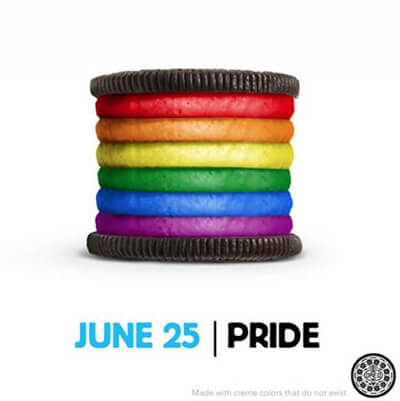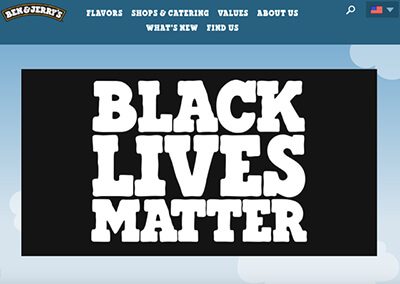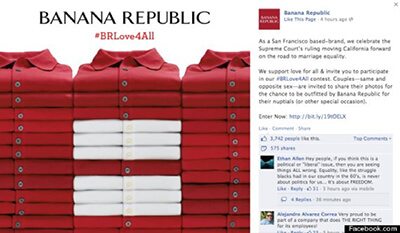At a time when civil discourse feels more divided than ever, an unprecedented number of brands are putting their stake in the ground for various social issues. Research shows that 84% of Americans believe businesses have a responsibility to bring social change on important issues (eMarketer), making it explicitly clear that today’s businesses must stay in lockstep with the current social climate or risk missing the mark with current and future customers.
“Woke” brands make sure that their values and mission serve as a compass for business and marketing decisions. #WokeBrands unapologetically declare what their brands stand for and allow their values to drive campaigns, not vice-versa. Aside from creating a more consistent, human and authentic brand message, this approach also often pays off in the form of fierce customer loyalty and brand ambassadorship.
Here’s a look at a few brands that have earned (or failed to earn) Woke status as of late:
Brand 1: Pepsi – NOT WOKE

Case in point–the now infamous Pepsi Kendall Jenner commercial fiasco. See Pepsi Zero: The Taste-Free Ad With No Fans. A sad attempt to bond with protesters and members of current political and social movements like #BlackLivesMatter, Occupy Wall Street, and the Fight For 15; Pepsi left much to be desired and created a PR nightmare instead.
It is not enough to simply mimic feelings or situations of social movements. If a brand is going to connect itself to a social movement, it needs to do so in an authentic way, taking a stand in support of a side. Pepsi created a campaign hoping to broadly embody certain values without actually taking a stand for anything. Not woke.
Brand 2: Oreo – WOKE

Oreo has been a strong advocate for the LGBT community and a vocal supporter of marriage equality on social media.
This “Pride” image was posted to Facebook as part of a series reflecting current events using images of Oreo cookies and milk to celebrate the brand’s 100th birthday. “As a company, Kraft Foods has a proud history of celebrating diversity and inclusiveness. We feel the Oreo ad is a fun reflection of our values,” Basil Maglaris, a spokeswoman for Oreo’s parent company Kraft Foods, stated.
Oreo and Kraft didn’t deem the advertisement “controversial”—instead, they emphasized that this ad was a “reflection of their values,” whether it pleased everybody or not. Woke.
Brand 3: Ben & Jerry’s – WOKE

Ben and Jerry’s has unapologetically supported the #BlackLivesMatter movement through a series of social media and blog posts as well as the Women’s March on Washington and the climate change movement that tips the social justice scales for the funky ice cream maker. They are overt in asking people to join them in the movements, mirroring the urgency and seriousness of the movements themselves.
Yes, they’ve experienced some backlash, but they didn’t back down because they knew the campaigns embodied their values and what they believed in as a company. They’ve also gained new customers for life and an overwhelming increase in brand awareness in the process of following their own moral compass. From marriage equality to climate change, and now with #BLM, there’s absolutely no confusion about where this progressive company stands. Woke.
Brand 4: Banana Republic – WOKE

Almost immediately after the Supreme Court overturned Proposition 8 as unconstitutional, Banana Republic launched its #BRLove4All campaign. Banana Republic invited everyone to celebrate the historic decision, each other, and love by posting photos with significant others–whether they be same or opposite sex. Those that used the hashtag #BRLove4All had the chance to be outfitted by Banana Republic for their nuptials or other special occasion. The retailer posted the contest entries to its Facebook page and showcased its diverse consumer community in a photo gallery. This campaign was a win due to its timeliness—launching as history was made—and its celebration of diverse consumers—rather than its product. Woke.
By humanizing their brands, taking a position that aligns with their stated core values, and starting organic conversations around current events and news, woke companies are able to meet their consumers where they are and make them feel okay about spending dollars with them.
Of course, there’s a fine line. But instead of ignoring current events, brands should employ relevant content marketing strategies to engage audiences in authentic ways. People want the companies they support to be ethical, sustainable, and on the right side of history. To do so, companies must define their brands’ values and mission and refresh them often as they begin to feel outdated, non-inclusive, or even offensive to certain populations.
Through keeping a pulse on social movements and allowing their own values, mission, and pillars to direct campaigns, brands create an opportunity to bond with core consumers as well as lend a hand in leading change.






